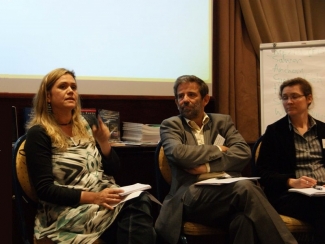Ocean Food-Web Patrol – Climate Effects: Reducing Targeted Uncertainties With An Interactive Network
The project has the goal of providing more comprehensive and reliable information to climate scientists and politicians who must make decisions about climate actions. It will rely on collecting existing knowledge from databases and will generate new knowledge where gaps are identified.
